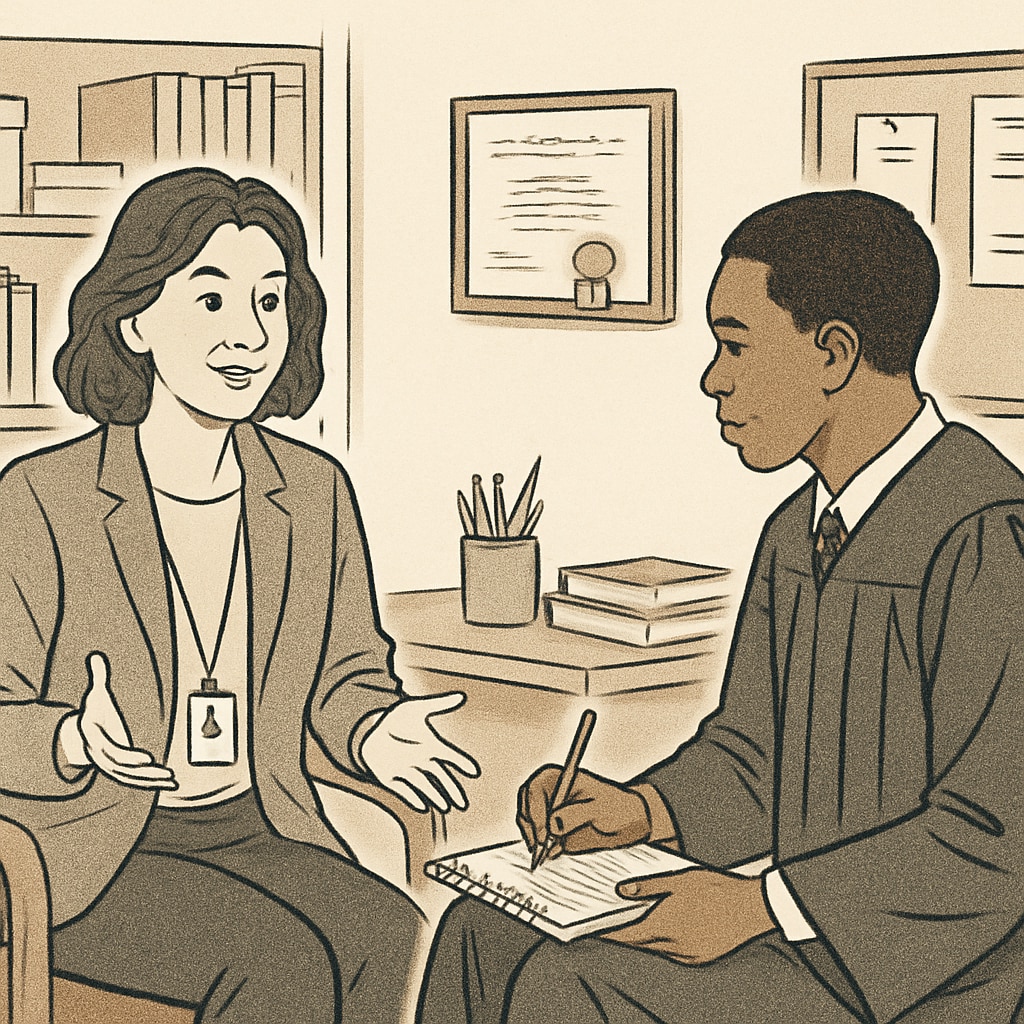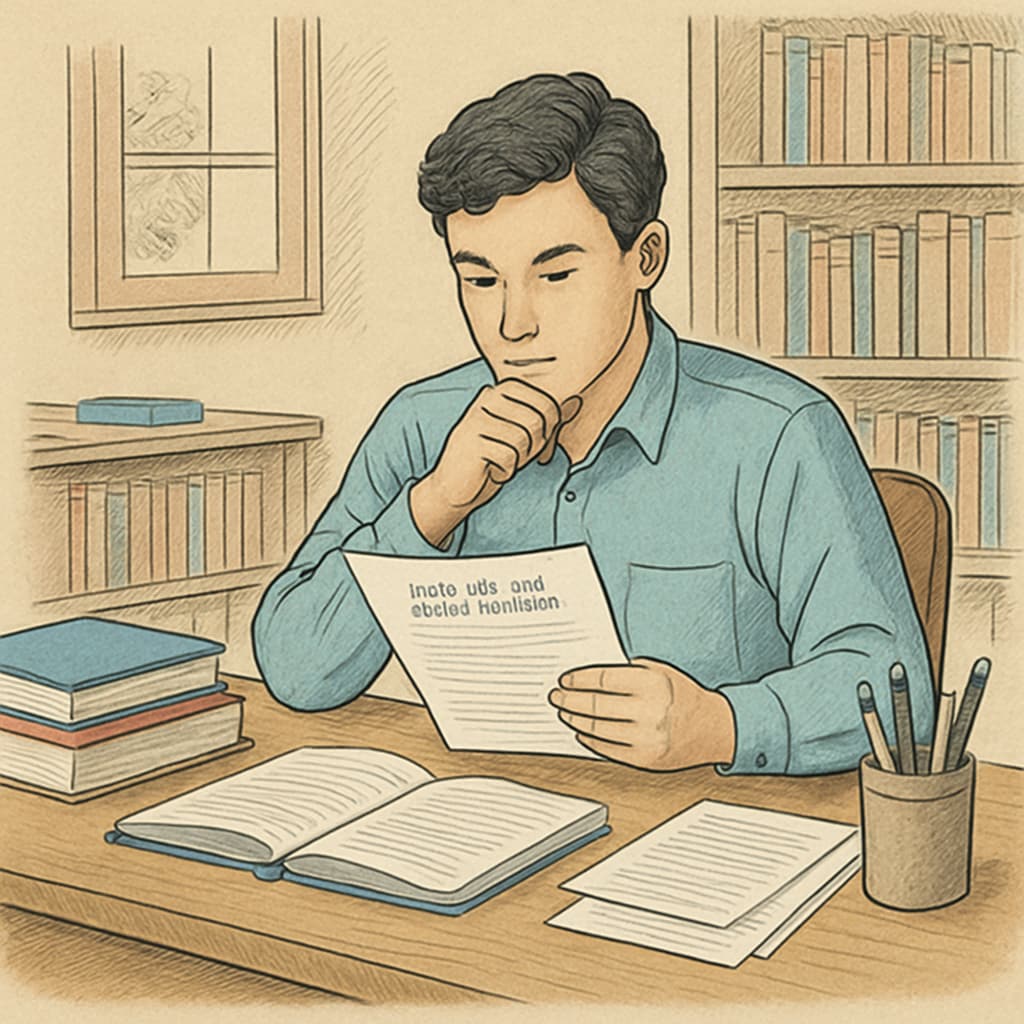Conducting interviews with school counselors is a critical component of academic assignments for graduate counseling students. These interviews provide a unique opportunity to bridge theoretical knowledge with practical insights. However, many students face challenges such as scheduling conflicts, professional etiquette, and effectively gathering useful information. This article discusses the importance of these interviews, addresses common obstacles, and offers actionable strategies to ensure successful outcomes for students pursuing careers in school counseling.

Why School Counselor Interviews Matter for Graduate Students
Interviews with school counselors allow graduate students to gain firsthand knowledge about the intricacies of counseling in educational environments. These conversations help students understand how theoretical models are applied in real-life situations, such as managing student crises, implementing mental health programs, and collaborating with teachers and parents. Additionally, these interviews can provide insights into common challenges counselors face, preparing students for their future roles in the field.
For example, according to a Britannica article on school counseling, the profession requires a delicate balance of academic guidance and emotional support. Graduate students can benefit significantly from learning how experienced counselors navigate these responsibilities.
Key Challenges in Conducting Interviews
While interviews are valuable, they often come with hurdles. Common challenges include:
- Scheduling Conflicts: School counselors have packed schedules, making it difficult to find mutually convenient times.
- Professional Boundaries: Students may feel uncertain about how to approach counselors or frame their questions without appearing intrusive.
- Information Overload: Gathering too much or irrelevant information during interviews can complicate the task of synthesizing findings for assignments.
Addressing these obstacles requires proactive planning and effective communication. For instance, sending clear and concise interview requests via email and offering flexible scheduling options can alleviate timing issues.

Strategies for Effective Interviews
To ensure productive interviews, graduate counseling students can follow these practical steps:
- Preparation: Research the counselor’s school and role before the interview. Prepare questions that align with both academic requirements and professional interests.
- Communication: Use professional language in correspondence and explain the purpose of the interview clearly. Include a brief overview of your academic assignment to contextualize your questions.
- Active Listening: During the interview, listen attentively and take detailed notes. Avoid interrupting and allow the counselor to elaborate on their experiences.
- Follow-Up: Send a thank-you email expressing gratitude for their time and insights. This gesture strengthens professional relationships and leaves a positive impression.
These strategies not only enhance interview outcomes but also demonstrate professionalism, which is essential for building long-term connections in the field.
The Role of Networking in Professional Growth
Beyond academic tasks, interviews can serve as a foundation for networking. Establishing relationships with school counselors can open doors to mentorship opportunities, internships, and job prospects. Networking is especially crucial in counseling, where collaboration and shared experiences enrich professional practice.
For example, the Wikipedia entry on counseling highlights the importance of interpersonal connections in this field. Graduate students can use interviews as a stepping stone to build their own professional networks, ensuring they are prepared for career advancement.
In addition to interviews, students can attend local workshops, seminars, and conferences to meet professionals in the field. Combining these efforts creates a robust network that supports both academic and career success.
Conclusion
Interviews with school counselors are invaluable for graduate counseling students, offering insights that bridge the gap between theory and practice. By addressing challenges and implementing effective strategies, students can maximize the benefits of these interactions. Furthermore, leveraging these interviews for networking ensures long-term professional growth. Whether completing assignments or planning career paths, graduate students can use these experiences to lay the groundwork for a successful future in school counseling.
Readability guidance: This article uses concise paragraphs and lists to summarize key points. It balances academic insights with practical advice, ensuring accessibility for graduate students.


